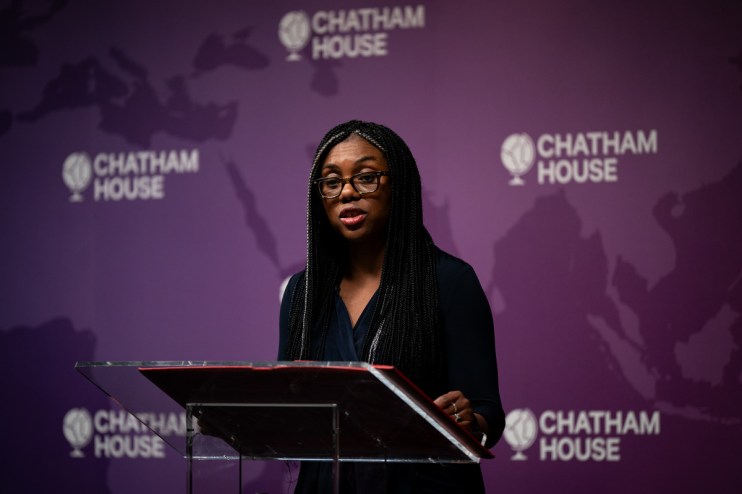‘Texas Hold ‘Em’: Badenoch to ink trade MOU with 9th largest economy in the world

Kemi Badenoch is set to sign a trade cooperation pact with Texas as the UK continues to go after state-level deals in the absence of a wider national deal with the USA.
The business and trade secretary and Texas governor Greg Abbott are expected to formally sign the agreement in Westminster on Wednesday.
Texas, if it was a country, could claim to have the ninth largest GDP in the world.
It is not a trade deal, as individual US states do not have the power to sign these, but similar to a memorandum of understanding (MoU) aimed at boosting trade and removing barriers.
Badenoch said: “I’m delighted to welcome Governor Abbott to the UK for this landmark signing. Today’s signature with Texas marks the UK’s eighth US state-level pact.
“UK firms now have access to states with a combined GDP of £5.3trn – equivalent to a quarter of the US economy. Our US strategy is working and delivering for businesses.”
The agreement is targeted particularly at the energy sector, as well as life sciences and business services.
British firms had already enjoyed Texas success, with the government’s BioBridge scheme with the Texas Medical Centre helping 30 UK life sciences companies expand in the state.
Abbott said: “As our ninth largest trade partner, the UK plays a critical role in the Texas economic juggernaut. Strengthening the bond between Texas and the UK is crucial for our shared economies to prosper.”
He added: “Texas is the economic engine of America, where entrepreneurs from around the globe can cast a vision and know they can achieve it. Working with our British partners, we will chart a greater path towards success and opportunity.”
Scoring a trade deal with America was in the Conservatives’ 2019 manifesto, but progress has stalled, with Badenoch blaming a lack of interest from the current US administration.
Instead, the UK has pursued a series of state-level deals, including Indiana in May 2022 and most recently Florida in November last year.
The agreements do not lower tariffs as a free trade deal would, but provide some help for businesses by recognising UK qualifications or addressing state-level regulatory issues.
